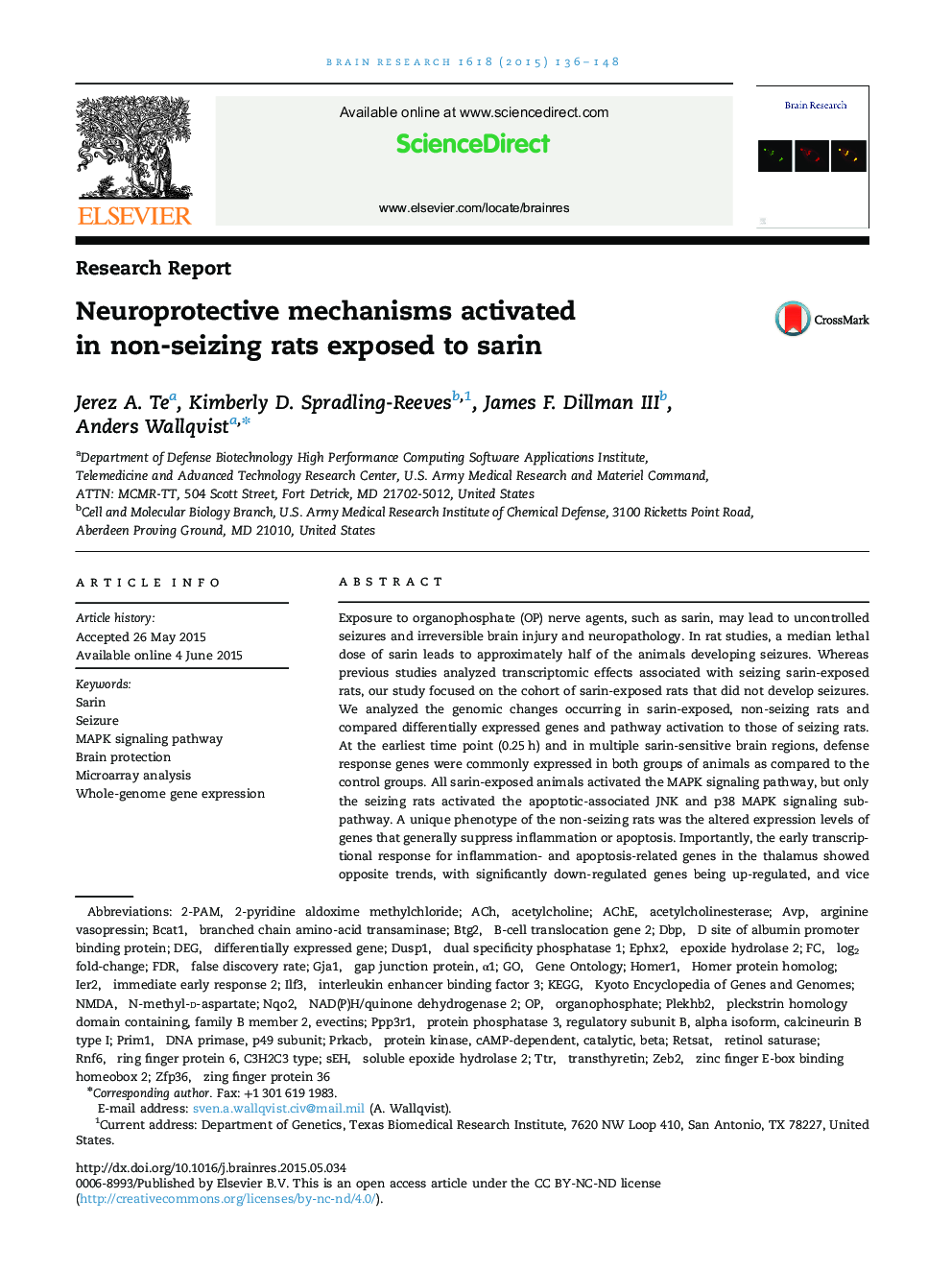| کد مقاله | کد نشریه | سال انتشار | مقاله انگلیسی | نسخه تمام متن |
|---|---|---|---|---|
| 6263070 | 1613821 | 2015 | 13 صفحه PDF | دانلود رایگان |
- Non-seizing rats have an anti-inflammatory and anti-apoptotic response to sarin.
- Only seizing rats activated the JNK and p38 MAPK sub-pathway.
- Non-seizing rats up-regulated thalamic down-regulated genes in seizing rats.
Exposure to organophosphate (OP) nerve agents, such as sarin, may lead to uncontrolled seizures and irreversible brain injury and neuropathology. In rat studies, a median lethal dose of sarin leads to approximately half of the animals developing seizures. Whereas previous studies analyzed transcriptomic effects associated with seizing sarin-exposed rats, our study focused on the cohort of sarin-exposed rats that did not develop seizures. We analyzed the genomic changes occurring in sarin-exposed, non-seizing rats and compared differentially expressed genes and pathway activation to those of seizing rats. At the earliest time point (0.25Â h) and in multiple sarin-sensitive brain regions, defense response genes were commonly expressed in both groups of animals as compared to the control groups. All sarin-exposed animals activated the MAPK signaling pathway, but only the seizing rats activated the apoptotic-associated JNK and p38 MAPK signaling sub-pathway. A unique phenotype of the non-seizing rats was the altered expression levels of genes that generally suppress inflammation or apoptosis. Importantly, the early transcriptional response for inflammation- and apoptosis-related genes in the thalamus showed opposite trends, with significantly down-regulated genes being up-regulated, and vice versa, between the seizing and non-seizing rats. These observations lend support to the hypothesis that regulation of anti-inflammatory genes might be part of an active and sufficient response in the non-seizing group to protect against the onset of seizures. As such, stimulating or activating these responses via pretreatment strategies could boost resilience against nerve agent exposures.
Journal: Brain Research - Volume 1618, 27 August 2015, Pages 136-148
